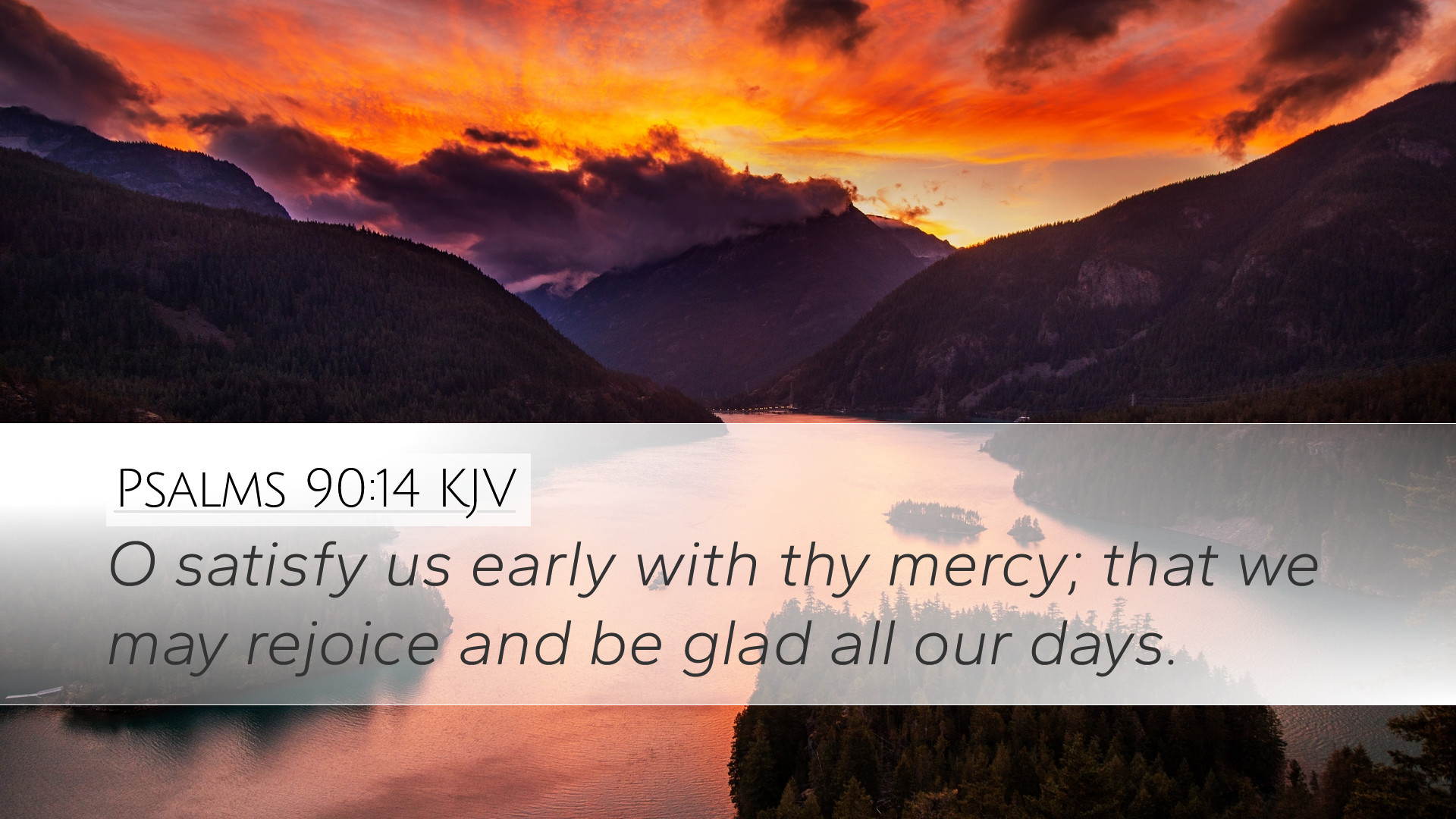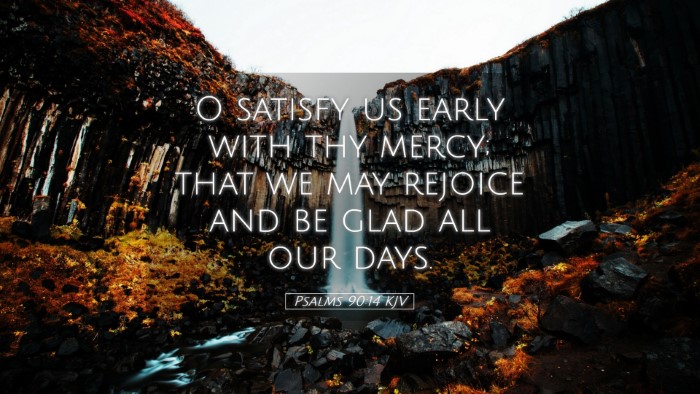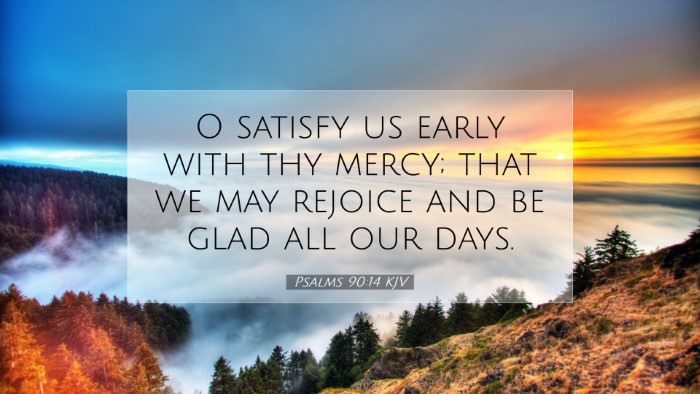Psalms 90:14 Commentary
Verse: "Satisfy us in the morning with thy mercy; that we may rejoice and be glad all our days." (Psalms 90:14)
Introduction
The prayer in Psalm 90:14 encapsulates a profound yearning for divine satisfaction through God’s mercy. In this verse, the psalmist asserts the need for God's goodness and grace as a foundation for joy and fulfillment throughout life. The commentary that follows merges insights from Matthew Henry, Albert Barnes, and Adam Clarke, addressing its theological implications and pastoral applications.
The Context of Psalms 90
Psalms 90 is attributed to Moses, highlighting the temporal nature of human life in contrast to the eternal nature of God. The psalm opens with reflections on human mortality, the brevity of life, and the inevitability of death. It serves as a sobering reminder of humanity’s frailty against the backdrop of God’s everlasting nature.
Verse Breakdown
1. "Satisfy us in the morning with thy mercy"
Divine Satisfaction: The request for satisfaction indicates a deep spiritual need. As Henry outlines, this world often leaves individuals desiring more — more joy, more peace, and more fulfillment. The psalmist acknowledges that only God can fulfill this need through His mercy.
Morning as a Symbol: The mention of "morning" illustrates hope and renewal. Barnes points out that mornings symbolize the beginning of a new day and new opportunities, which reflect the blessings of God’s mercy that should be sought each day. Our daily spiritual sustenance must begin with a plea for God’s grace.
2. "that we may rejoice and be glad all our days"
Joy from Mercy: The result of receiving God’s mercy is joy. Adam Clarke notes that joy is not merely a fleeting emotion but a constant state that comes from recognizing God’s grace over our lives. This joy is essential for navigating through life’s trials and challenges.
All Our Days: The phrase "all our days" signifies the enduring nature of this joy. It is not limited to moments of ease but is rooted in the perpetual goodness of God’s mercy regardless of circumstances. The psalmist desires a continuous experience of gladness that flows from a right relationship with God.
Theological Implications
This verse invites readers to reflect on their reliance on God’s mercy as the source of true satisfaction. As communities of faith, there is an inherent theology in understanding that our joy and fulfillment are inherently tied to how we perceive and receive God’s grace.
- God's Mercy as the Foundation: Understanding that before anything else, our requests and yearnings must be for God’s mercy, points to the truth that life is ultimately dependent on His grace.
- Renewal and Hope: The morning serves as a metaphor for resurrection and renewal — just as Christ’s resurrection brings hope for all believers, so too does the daily petition for God’s mercy revive our spirits each day.
- Enduring Joy in All Circumstances: This verse challenges contemporary attitudes towards happiness which often pivot on situational factors. The focus is instead on a persistent gladness imbued by God’s unchanging love.
Pastoral Applications
For pastors and spiritual leaders, Psalms 90:14 serves as a robust text for preaching and counseling:
- Encouragement for the Weary: This verse can bring comfort to those struggling with disillusionment or despair, encouraging them to seek God's mercy which guarantees joy.
- Teach about Daily Dependence on God: This verse underscores the necessity of turning to God every morning as a spiritual practice, fostering a habit of seeking divine nourishment.
- Fostering a Grateful Community: It is vital to cultivate environments within congregations that recognize and celebrate God’s mercies, making joy a collective experience.
Conclusion
Psalms 90:14, by its essence, is a heartfelt declaration of reliance on divine mercy. It teaches that true joy in life is intricately linked to the experience of God's grace and compassion. As believers engage deeply with this verse, they are invited to reflect, pray, and ultimately live in pursuit of the satisfaction that only God can provide, experiencing the rejoicing that comes forth from His abundant mercy.


